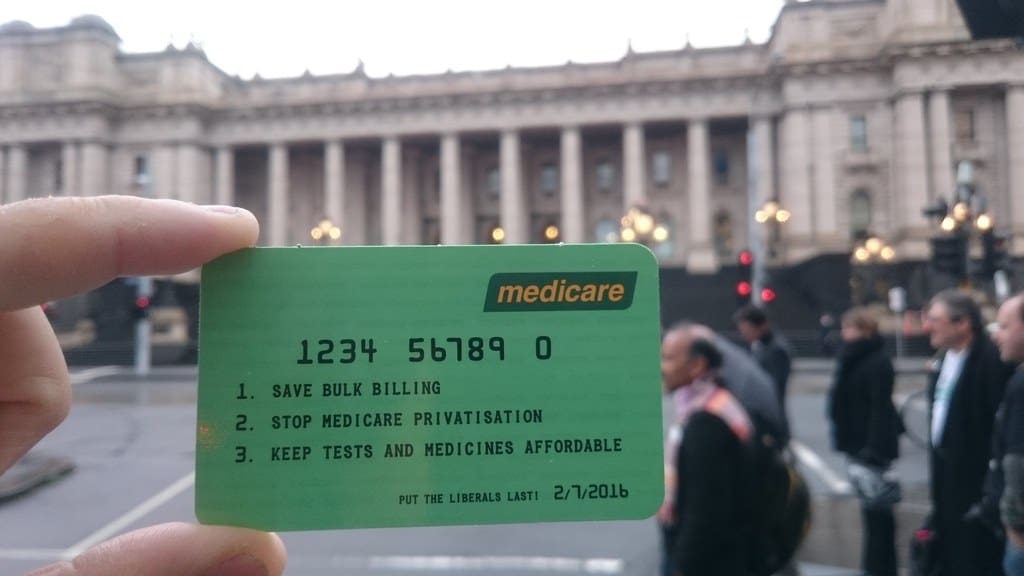My search for a doctor usually starts with a dialogue with friends. It starts with listing my preferences, which regrettably sound akin to features you might find on a hinge profile: easy to talk to, a good listener, friendly, woman-identifying… All seemingly benign, standard requests. But then there’s the dealbreaker — do they bulk bill?
For the past few months, I have been trying a number of doctors, with a preference for a bulk-billed practice. Recently, I settled for a local practice with a $30 gap fee and some great GPs, but was sobered by the scarcity of bulk-billed practices in the densely populated Inner West of Sydney. Moreover, the case in the inner city hardly compares to the scarcity of bulk billing available in rural and regional areas, which is compounded by the lack of GPs themselves.
The Royal Australian College of General Practitioners (RACGP) reported on a survey conducted across 4,188 general practices (which comprises about 70% of the total GP workforce), which found that fewer than half of the clinics bulk bill all patients. The RACGP President, Dr Nicole Higgins, said the downward trend in bulk billing is not likely to ease in the foreseeable future.
In the wake of the 2023 Federal Budget, acclamations of an elusive surplus, and billions spent on the AUKUS deal, I wondered if this strain on our healthcare system would be met with some relief. With bulk billing rates dropping across Australia annually, it has been encouraging to see newly announced budget incentives for GPs, as well as $3.5 billion dedicated to bulk-billing incentives for Indigenous people. The efficacy of such incentive schemes, however, have been called into question. In an interview with The Guardian, health policy analyst Charles Maskell-Knight, remarks that incentives “will not reverse the trend of practices charging some patients a private fee.” These new financial injections have been criticised as being “fee-for-service” or one off payment in nature. Various GPs and medical experts have questioned the longevity of this support into doubt, and whether it will remain viable in the midst of inflation.
The hunt for a great GP can leave you jaded. My previous GP was perfect. She had an interest in women’s health, and extra qualifications in skin cancer treatment, which I have a family history of. It was streamlined, and a relief to have a GP I could go to for everything. After building trust with this GP to perform my skin checks, discuss mental health without judgement, and perform one very memorable excision biopsy between my breasts, it was dejecting to find out through a grim LinkedIn stalk that she had moved to New Zealand.
I initially discussed with some mates that I needed a new GP, and was recommended to some new practices. I compiled these recommendations, all in the Inner West and conveniently close to USyd, but none of them bulk billed. Preparing myself for the wrath it’d have on my bank account, I found that in a majority-women practice that I selected to try, most of the doctors were not taking on new patients. The scarcity issue was crystallising.
After hitting this dead-end, I took the natural next step — wading through the digital purgatory of Google reviews. At least this way it was easier to filter by practices which bulk billed. Propelled by one especially terrible doctor’s visit (monosyllabic answers to questions, mis-prescribed medication, condition intensely worsening) I became a Google-review connoisseur, ardent that this wouldn’t happen to me again.
Google reviews, despite their reputation for chaos, crystallised some very real, and very grave, issues ubiquitous across clinics in Sydney. Even though your average Google review will be a complaint, I was reading masses of disappointed reviews pertaining to bulk-billed clinics across the Inner West, most of which could seemingly be resolved, or at the very least mitigated, with support, resources, and funding. Repeat complaints arose about clinics which used to bulk bill and no longer do. A suite of disheartening complaints I have found recently, regarding a variety of clinics in the Inner West included:
“Horrifically classist. Changed their billing to exclude the lower class from their establishment. Anyone involved in removing treatment options from those less fortunate than them should be absolutely ashamed of themselves”
“No longer bulk billing so this should not be on their website”
“Never felt so rushed to describe about 4 to 5 different conditions I am suffering with”
“This is a bulk billing practice. I guess you get what you pay for?”
Lack of bulk billing impacts the most vulnerable. With more clinics requiring additional fees, this immediately excludes volumes of patients who need access to care. In the midst of inflation, it is unviable to raise the asking price of a GP visit, or add bureaucratic external fees to the equation. We possess brilliant healthcare resources and even more remarkable medical professionals — the issues exist in the barriers toward accessing them.





